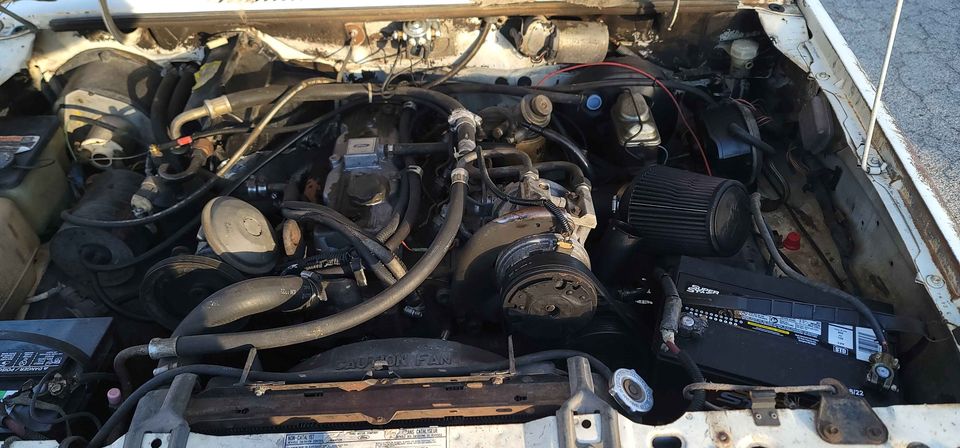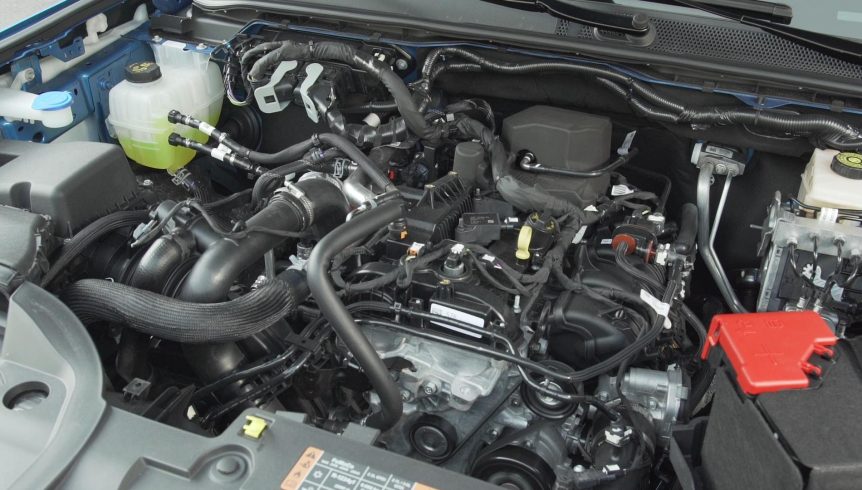Just How to Choose the Right Vehicle Engine for Maximum Performance and Performance
Selecting the proper automobile engine to attain an optimal balance of efficiency and effectiveness necessitates a nuanced understanding of numerous engine types and their specific characteristics (2.2 ford ranger engine). Factors such as engine displacement, the number of cyndrical tubes, and fuel type play an essential function in identifying both power outcome and gas economy.
Recognizing Engine Kind
When picking a cars and truck, among the most important parts to take into consideration is the engine type, which acts as the heart of the vehicle. The engine type significantly influences the auto's overall performance, durability, and viability for your driving demands. There are largely 3 engine kinds to consider: interior burning engines (ICE), hybrid engines, and electrical engines.
Interior burning engines remain the most common, operating gas or diesel. They are known for their power and acceleration, making them ideal for performance-oriented vehicles. They might drop short in gas effectiveness and environmental impact.
Hybrid engines combine an internal combustion engine with an electric motor, using an equilibrium between efficiency and fuel economy. They are progressively prominent for motorists looking for lowered exhausts while still providing appropriate power.
Electric engines, powered totally by batteries, are obtaining grip due to their environmental benefits and reduced running prices. They supply instant torque and a peaceful driving experience, making them excellent for city travelling.

Performance vs. Efficiency
Choosing the best engine type entails weighing the trade-offs between efficiency and efficiency. Efficiency generally describes exactly how well an engine can deliver power and acceleration, which is frequently associated with bigger displacement engines or those with turbocharging capabilities. These engines generally offer exhilarating driving experiences and quick feedback times, making them preferred among lovers.
On the various other hand, efficiency concentrates on gas economic climate and reduced exhausts. Smaller engines, specifically those furnished with innovative technologies such as straight gas shot and variable shutoff timing, tend to deliver much better miles per gallon and lowered carbon footprints. While these engines may compromise some power contrasted to their bigger counterparts, they commonly master everyday driving circumstances where high performance is not always needed.
Inevitably, the choice between performance and efficiency hinges on specific concerns. A driver that values spirited driving may focus on a high-performance engine, while somebody seeking cost-efficient commuting may lean toward an efficient option. Understanding these compromises is essential for making a notified decision that aligns with your driving requirements and way of life, making sure that the chosen engine type matches your expectations for both performance and efficiency.
Key Specs to Think About
Understanding key specifications is essential for making an informed decision concerning the appropriate vehicle engine. When choosing an engine, several vital aspects require factor to consider to make certain ideal efficiency and performance.
It shows the overall volume of the engine's cyndrical tubes and normally correlates with power outcome; larger displacements frequently generate more power. Engines with even more cylinders can supply smoother procedure and higher power, while smaller sized configurations can boost fuel effectiveness.
In addition, the engine's configuration, whether inline, V-type, or rotating, affects the overall layout and performance attributes of the vehicle from this source - 2.2 ford ranger engine. Turbocharging and supercharging modern technologies must additionally be examined; these increase an engine's power outcome without substantially raising its dimension, thus enhancing performance
Fuel type is one more key factor to consider, as it influences both performance and costs. The engine's compression proportion affects efficiency and power shipment; a higher proportion usually leads to far better performance, yet might require premium fuel. By very carefully analyzing these requirements, you can choose an engine that lines up with your efficiency and efficiency goals.
Reviewing Driving Needs
Evaluating driving needs is an essential action in figuring out the ideal automobile engine for your way of living and use patterns. If your driving largely is composed of short commutes in urban environments, a smaller sized engine with excellent gas effectiveness might be enough.
Consider the surface you usually browse. Hilly or sturdy landscapes may demand an engine with greater torque for much better efficiency. Additionally, review guest and cargo needs; bigger family members or those who transfer products might gain from automobiles with raised power and capability.
Diesel engines often use superior torque and fuel economic situation for larger lorries, while gas engines might supply a smoother and quieter ride. Variable in environmental factors to consider, as hybrid or electrical engines can offer an extra sustainable alternative without giving up performance.
Future Fads in Engine Innovation
As the vehicle industry remains to advance, innovations in engine modern technology are paving the way for more reliable and sustainable driving experiences. One substantial pattern is the shift toward electrification, with crossbreed and totally electrical powertrains gaining prominence. Car manufacturers are spending heavily in battery innovation to enhance power density and lower charging times, eventually enhancing the usefulness of electric automobiles (EVs)
Another emerging pattern is the development of hydrogen gas cell engines. 2.2 ford ranger engine. These systems supply the possibility for zero-emission driving while offering refueling times equivalent to standard fuel engines. Additionally, innovations in burning technology, such as variable compression proportions and enhanced turbocharging, are optimizing standard internal combustion engines for better performance and efficiency
Digital integration is likewise a vital aspect of future engine modern technology. The implementation of man-made intelligence and equipment learning enables for real-time information analysis, enabling smarter engine monitoring systems that adapt to driving conditions website link and improve fuel performance.

Conclusion
In verdict, choosing the appropriate auto engine requires a thorough evaluation of various aspects, consisting of engine kind, performance requirements, and efficiency objectives. By recognizing the differences between different engine kinds and considering crucial requirements, individuals can align their choices with details driving needs. As developments in engine modern technology remain to arise, remaining notified concerning future fads will certainly further enhance decision-making, eventually causing an automobile that stabilizes efficiency and gas performance properly.
Picking the ideal automobile engine to accomplish an ideal balance of performance and efficiency demands a nuanced understanding of numerous engine kinds and their details qualities. There are primarily three engine types to consider: inner burning engines (ICE), hybrid engines, blog here and electrical engines.
Performance generally refers to just how well an engine can deliver power and acceleration, which is frequently connected with larger variation engines or those with turbocharging capacities. Diesel engines usually supply remarkable torque and fuel economic climate for heavier vehicles, while gas engines may give a smoother and quieter experience.In final thought, selecting the ideal auto engine requires an extensive assessment of numerous aspects, including engine kind, efficiency requirements, and performance goals.